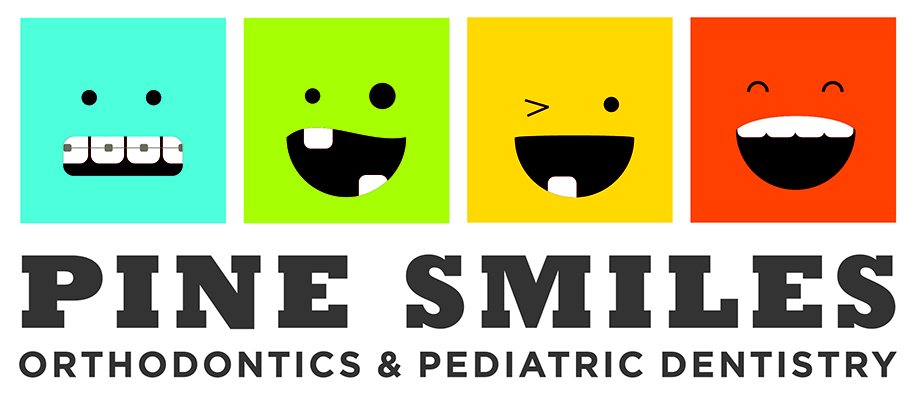What is a pediatric dentist?
What if a tooth is chipped or fractured?
What to do about a discolored tooth?
What should I do if my child's baby tooth is knocked out?
What should I do if my child’s permanent tooth is knocked out?
What if my child has a possible broken jaw?
What if my child is bleeding after a baby tooth falls out?
What is a pediatric dentist?
Pediatric dentists are the pediatricians of dentistry. Pediatric dentistry is the speciality of dentistry that focuses on the oral health of young people. After completing a four-year dental school curriculum, two additional years of rigorous training are required to become a pediatric dentist. This prepares us to meet the needs of infants, children and adolescents, including persons with special health care needs.
How can I help my child enjoy good dental health?
The following recommendations can help your child be part of the cavity-free club:
- Thoroughly cleaning your infant’s gums after each feeding with a water-soaked infant cloth. This stimulates the gum tissue and removes food.
- Good oral hygiene: brush at least twice a day and floss once a day
- Healthy eating habits: try and avoid frequent snacking, avoid sticky foods and limit sugary drinks
- Visits every six months to the dentist, starting no later than age one
- Have protective sealants applied when appropriate
What to do for immediate emergency care?
First, assess whether or not your child's injury involved hitting the head causing them to lose consciousness even for a brief moment, or if there are any medical concerns. If this is the case, call your pediatrician first or go to a hospital emergency room. Worry about the teeth later.
When is a tooth falling out not an emergency?
When the tooth is exfoliating (being pushed out by the permanent tooth). Teeth naturally fall out as their roots are resorbed or dissolved away by an erupting permanent tooth. This process can cause the baby tooth to change color and get extremely loose. Loose teeth are often uncomfortable to brush or eat with. Though not an emergency, if your child is uncomfortable with a loose tooth, you can make an appointment and bring them in to be checked.
What if my child has a toothache?
Begin by cleaning the area around the sore tooth thoroughly by rinsing your child’s mouth with water and flossing and brushing away any trapped food. Under no circumstances should you use aspirin on the aching tooth or on the gum. In the event of facial swelling, apply a cold compress to the area and call your dentist immediately. For temporary pain relief, give your child an over-the-counter pain reliever approved by your pediatrician. Call our office for an appointment with Dr. Gandhi as soon as possible.
What if my child cuts or bites tongue, lip or cheek?
Ice can be applied to any bruised areas. For bleeding, apply firm (but gentle) pressure with sterile gauze or a clean cloth. If the bleeding does not stop with pressure or continues after 15 minutes, go to an emergency room.
What if a tooth is chipped or fractured?
Contact your dentist immediately to determine if the fracture requires immediate attention. Rinse your child's mouth with room temperature water and apply cold compresses to reduce any swelling. If you can find the broken tooth fragment, bring it with you to the dentist. A fragment can often be bonded back onto the tooth. Even without the broken piece, a dentist can restore the tooth to its natural appearance with bonding.
What to do about a discolored tooth?
Tooth darkening or discoloration after a trauma is similar to a bruise on the skin. Call our office for an appointment to make sure there is no infection.
What should I do if my child's baby tooth is knocked out?
Contact your dentist as soon as possible. We do not re-implant baby teeth but it is important to examine your child to be sure no fragments of tooth are embedded in the gums, lip or tongue, as well as determine the extent of trauma to other teeth in the area. Bring along the knocked out tooth.
What should I do if my child’s permanent tooth is knocked out?
Find the tooth! Recover the tooth and hold the tooth by the crown (top) and not the root end. Rinse the tooth gently using only cool water. Do NOT scrub it or clean with soap - JUST WATER! If possible, replace the tooth back in the socket and hold it in place with clean gauze or a washcloth. If you can't put the tooth back in the socket, place the tooth in a clean container with milk. Call Dr. Gandhi immediately because time is essential. Teeth that have been knocked out will almost always require a root canal, but they can often survive for years if treated promptly. The faster you act, the better your chances of saving the tooth.
What if my child has a possible broken jaw?
In the event of jaw injury, go immediately to an emergency room.
What if my child is bleeding after a baby tooth falls out?
Fold a piece of gauze and place it (tightly) over the bleeding area. Have your child bite down on the gauze for 15 minutes; if bleeding continues, call us for an appointment.
What if my child has a cold or canker sores?
Over-the-counter medications will usually provide temporary relief. If sores persist, call us for an appointment.
Can dental injuries be prevented?
Yes. First, reduce oral injury in sports and recreation activities by having your child wear a helmet and/or mouth guard when warranted. Second, always use a car seat for young children. Require seat belts for everyone else in the car. Third, childproof your home to prevent falls, electrical injuries, and choking on small objects. Fourth, protect your child from unnecessary toothaches with regular dental visits and preventive care.
